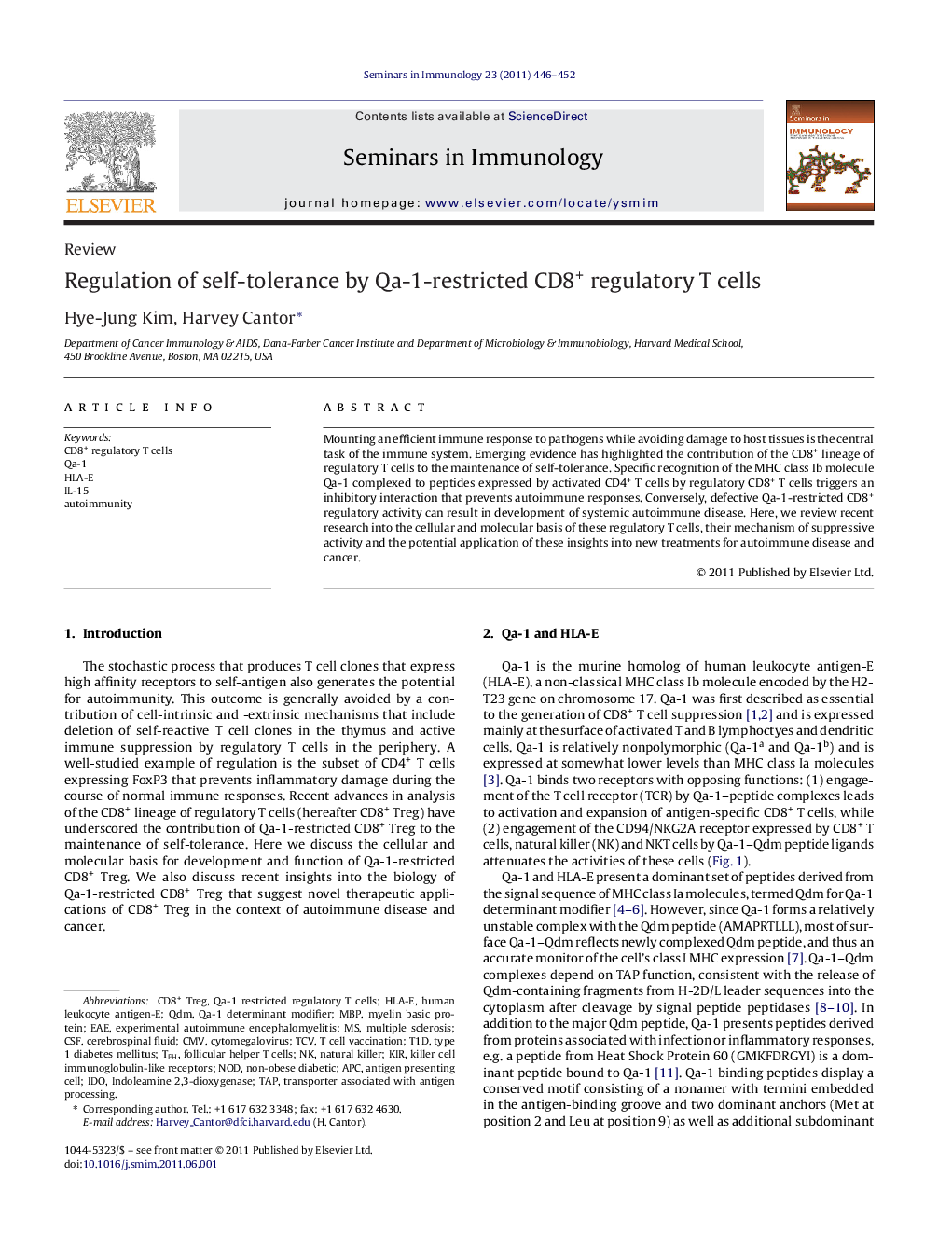| Article ID | Journal | Published Year | Pages | File Type |
|---|---|---|---|---|
| 3391540 | Seminars in Immunology | 2011 | 7 Pages |
Mounting an efficient immune response to pathogens while avoiding damage to host tissues is the central task of the immune system. Emerging evidence has highlighted the contribution of the CD8+ lineage of regulatory T cells to the maintenance of self-tolerance. Specific recognition of the MHC class Ib molecule Qa-1 complexed to peptides expressed by activated CD4+ T cells by regulatory CD8+ T cells triggers an inhibitory interaction that prevents autoimmune responses. Conversely, defective Qa-1-restricted CD8+ regulatory activity can result in development of systemic autoimmune disease. Here, we review recent research into the cellular and molecular basis of these regulatory T cells, their mechanism of suppressive activity and the potential application of these insights into new treatments for autoimmune disease and cancer.
► Newly identified lineage of CD8+ regulatory T cells (Treg). ► Involvement of Qa-1-restricted CD8+ Treg in lupus-like disease. ► Dependence on the IL-15 cytokine. ► Potential therapeutic application for autoimmune disease and cancer.
